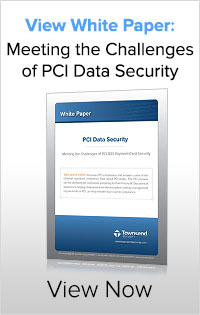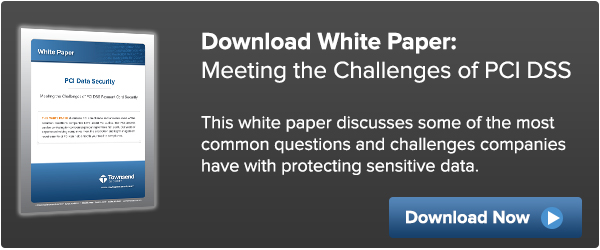Understanding PCI Merchant Levels and how an assessment can help your business
If your business takes credit cards for payment, then you are subject to the Payment Card Industry – Data Security Standards (PCI-DSS).
Companies of all sizes must comply with PCI DSS to ensure that their customers' data is protected during the processing and transmission of credit or debit card transactions and securely stored within any internal databases. PCI categorizes businesses into different classification levels based on the number of transactions and dollar amounts they processes each year.

Level 1 – All merchants processing more than 6 million card transactions annually
Level 2 – All merchants processing between 1 million and 6 million card transactions annually
Level 3 – All merchants processing between 20,000 and 1 million card-not-present only transactions annually
Level 4 – All other merchants
Level 1 companies are most likely well versed in the annual PCI audit process as they have a certified onsite audit annually with a Qualified Security Assessor (QSA). Level 2, 3, 4 merchants are not required to hire an onsite QSA, but can have a certified Internal Security Assessor (ISA) do the PCI self assessment annually. However, a small business preparing a self-assessment to participate in their first PCI review may find it a little daunting. If you're feeling that the PCI assessment process is overwhelming and complicated, understanding this process may be the first step toward putting your mind at ease. If you are a Level 1 merchant, the PCI assessment is a process carried out by a QSA to establish whether or not a business is compliant with security standards relating to the processing of transactions made via a credit or debit card (payment card). PCI compliance assesses your business point of sale system, payment applications, and all interconnecting systems with these goals in mind: (1) to examine your system, (2) to identify vulnerabilities, and (3) to prevent data from being compromised.
It’s not a matter of “IF”, but “WHEN”
If you have already suffered a data breach, working closely to review your assessment and put data security best practices into place will provide you with a roadmap to help avoid future losses. If you have not yet been breached, undergoing an assessment and reviewing your risk tolerance can still be stressful. Understanding the process may alleviate some of that stress and help you to maximize your use of the information in the PCI DSS assessment report
How can a PCI audit help my business?
PCI compliance auditing helps businesses to ensure they are providing the most secure environment for their customers to process payments and ensures that transactions are less likely to result in a compromise in the customers' data.
Ensuring that you meet PCI compliance and have a solid infrastructure for managing data security will increase customer confidence in your business and ensure that you're not exposed to security breaches that could have been avoided.
To learn more about meeting PCI compliance requirements, download the whitepaper Meet the Challenges of PCI Compliance and find the answers to the following questions (and more):
- What will my auditor look for?
- How can I ensure my customers' data is secure?
- What is the difference between tokenization and encryption?
- What is encryption key management and why are auditors looking at this?

